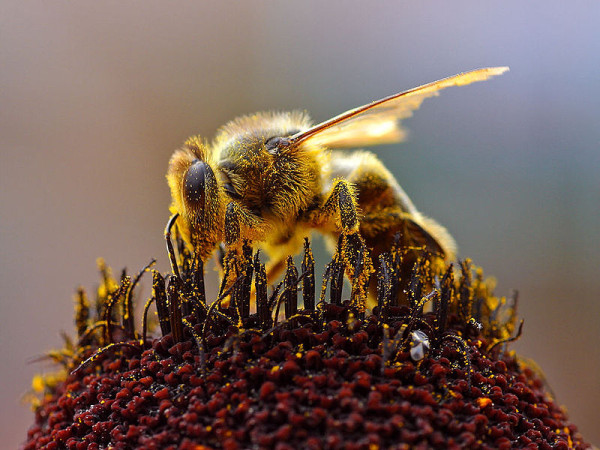We reported in Pressenza the importance of considering the effects of burning fossil fuels on health, as the discussions brought on by the evidence presented in the most recent report about climate change, making a very strong case for fossil fuel burning being responsible for changes to the planet’s atmosphere, seem to leave other important aspects to one side.
Not only health, but food security should also be taken into account, the latter related to the effects of pollutants on bees. Pollination by bees is essential for many crops, and although some can develop from seeds they may require insect pollination to produce seeds for the next generation. It is now known that the reduction in the number of bees observed in recent years is connected to certain pesticides, many still in use in spite of evidence of their deleterious effects on the bees. In fact the founder of Syngenta, the biotech giant joining Bayer in suing Europe to keep selling bee-killing pesticides, has just been awarded the prestigious World Food Prize, a kind of ‘Nobel Prize of agriculture’.
Furthermore, recent research discussed by the BBC has seen that “honeybees’ ability to find flowers could be hampered by a chemical in diesel exhaust, say scientists. Tests showed that exhaust degraded some floral scent chemicals the bees “home in on” when they are foraging. The study, published in Scientific Reports, also revealed that a specific group of chemicals found in diesel exhaust, known as NOx, diminished the insects’ response to floral scents…
…”We got into this, because we were aware of the impacts of airborne pollutants on human health, so it didn’t seem so wild that there may be impacts that extended beyond human health,” said University of Southampton neuroscientist Dr Tracey Newman, who was involved in the work.”










